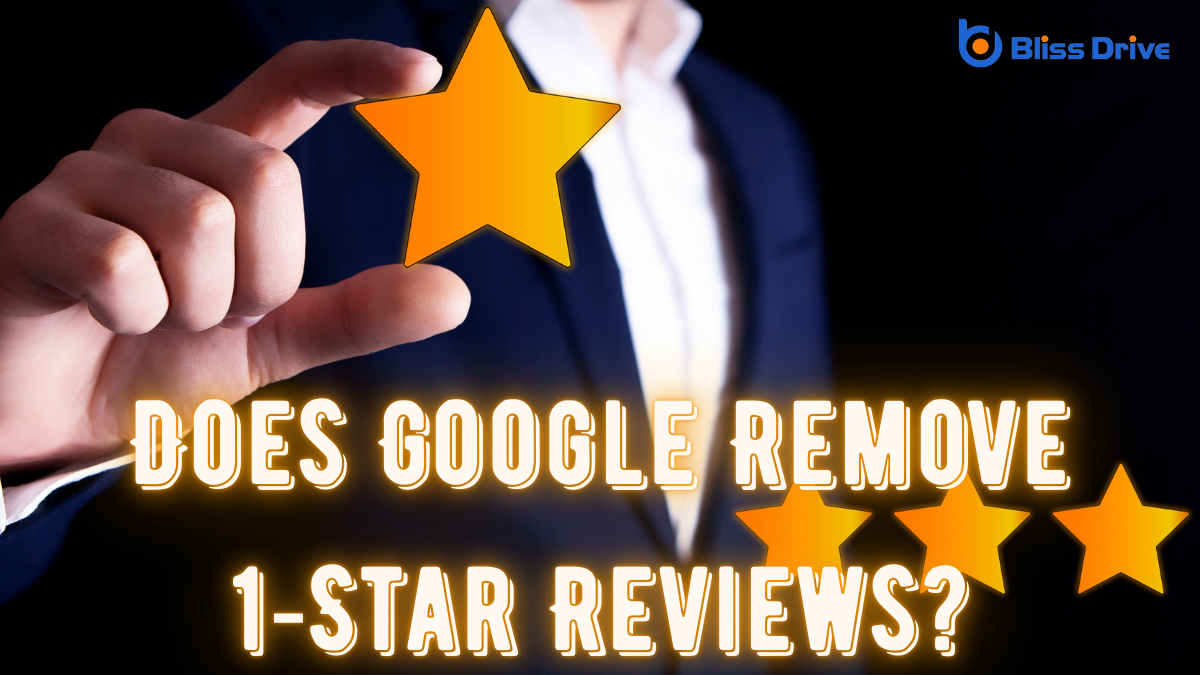Digital Marketing Services
Learn More About Us

I've often wondered if Google removes 1-star reviews just because they're negative. It's not as straightforward as some might think. While Google does have guidelines for review removal, not every low rating qualifies. Offensive language or privacy violations could leadA potential customer referred by an affiliate who has shown interest in the product or service but h... to a review being flagged, but a simple negative opinion usually remains. So, what's the impact of these reviews, and how should businesses respond? Let's explore this further.
When understanding Google's review policy, it’s vital to recognize that they aim to maintain a fair and trustworthy platform. I’ve found that Google doesn’t just randomly remove reviews, even if they're negative or one-star.
They work to guarantee every review reflects genuine user experiences. In my experience, Google allows users to express their opinions, whether good or bad, as long as they adhere to their guidelines. This means reviews shouldn’t contain spam, offensive language, or irrelevant content.
I’ve noticed that knowing these guidelines helps in appreciating why some reviews stay visible. Google wants to foster a community where honest feedback can guide future customers.

Although Google values honest feedback, they’ve set specific criteria for removing reviews that don’t comply with its guidelines.
I’ve learned that reviews containing offensive language, personal attacks, or explicit content don’t belong on their platform. Google also removes reviews that are fake or spam, including those written with the intent to manipulate ratings.
If a review promotes illegal activities or conflicts of interest, such as a business reviewing itself, it’s subject to removal too. Additionally, privacy violations, like sharing personal information without consent, get reviews flagged.
I understand that Google aims to maintain a respectful and trustworthy environment for users. By knowing what’s acceptable, we can contribute to a fair and honest review system that benefits everyone.
I've noticed that identifying problematic content in reviews can be tricky, but it's a vital first step.
If you come across a review that seems inappropriate, understanding Google's reporting process is essential.
Familiarizing yourself with Google's review guidelines will help you effectively flag content that violates their policies.
Spotting problematic content in online reviews is vital for maintaining credibility and trust on platforms like Google. I often find myself questioning the authenticity of certain reviews. It's important to know what to look for when identifying inappropriate content.
Reviews that include hate speech, personal attacks, or irrelevant information are red flags. They can mislead potential customers and damage a business's reputation. Another tell-tale sign is overly generic or suspiciously enthusiastic language, which might indicate a fake review.
I also pay attention to patterns, like a sudden influx of negative reviews, which could suggest coordinated attacks. By understanding these indicators, you and I can help maintain the integrity of online reviews.
This vigilance guarantees that authentic voices are heard and valued.
When you come across a review that seems suspicious or inappropriate, it's crucial to know how to report it to maintain the integrity of the platform.
First, navigate to the review in question. You'll see three vertical dots next to the review; click on them. A small menu will appear—select "Flag as inappropriate." This lets Google know there's a potential issue.
You might need to provide additional details, so be clear about why the review violates guidelines. Submitting the report prompts Google's team to evaluate the review and take appropriate action.
Google's review guidelines serve as the foundation for maintaining a fair and trustworthy feedback system. When a review feels off, it's essential to know what counts as inappropriate.
Google's guidelines help identify reviews that might breach their policies, including spam, fake content, or off-topic remarks. If you spot something suspicious, flagging it for review is the right step.
I’ve learned that Google takes these flags seriously, and they rely on us to highlight questionable content. By flagging a review, you're not just helping yourself but also the wider community.
Once flagged, Google reviews the content and decides if it violates its standards. They won’t remove a review just because it’s negative; it must genuinely breach their guidelines to be taken down.
Despite what some may believe, not every negative review gets removed by Google. I’ve come across many who think that Google automatically deletes all 1-star reviews. That’s not true. Google only removes reviews that violate its policies, like spam or inappropriate content. A simple negative opinion doesn’t meet those criteria.
Some also assume businesses can pay to have bad reviews taken down. However, Google’s review system isn’t influenced by money in that way. It’s designed to reflect genuine customer experiences.
Another misconception is that large companies receive special treatment in review management. In reality, Google's guidelines apply universally, ensuring fairness.
Understanding these myths helps us better navigate the review landscape and manage expectations accurately.

When I read a negative review, it immediately makes me question a brand's reputation and reliability.
You might feel the same, which shows how these reviews can erode consumer trust.
This lack of trust often leads to decreased sales and revenue for businesses struggling to maintain a positive image.
Negative reviews can greatly damage a brand's reputation, affecting customer trust and loyalty. When I see a slew of negative comments online, I can't help but question the quality of the business.
It's like a warning sign, urging me to reconsider my choices. Brands work hard to build a positive image, but just a few bad reviews can overshadow all that effort.
It's not just about a lost sale; it's about how potential customers perceive the brand. They might think twice before engaging with a business that others have criticized.
In today's digital age, where every opinion is amplified online, maintaining a good reputation is essential. Negative reviews can spread quickly, and I know that can be a difficult hurdle for any business.
Although it might seem like just another opinion online, a negative review can greatly erode consumer trust in a business.
When I see a string of 1-star reviews, I start questioning the reliability and quality of the service or product. A single negative review can plant doubt, but multiple can create a perception that the business consistently underdelivers.
It’s not just about one unhappy customer; it’s about the pattern that emerges. I know that you, like me, want to make informed choices. Negative reviews can signal potential red flags, prompting me to seek alternatives.
Trust is hard to build and easy to lose. In our digital age, where reviews play a pivotal role, maintaining consumer trust is more essential than ever.
Even a single 1-star review can greatly affect a business's bottom line, leading to potential sales and revenue losses.
As a business owner, I've felt the sting of seeing a negative review pop up. It's not just about the immediate impact; it's the ripple effect. Potential customers often read reviews before deciding where to spend their money. A negative comment can deter them, pushing them towards competitors with better ratings.
This shift can result in fewer sales and a noticeable dip in revenue. It's essential to address these reviews promptly and professionally. By doing so, you show prospective customers that you care about their experience, potentially mitigating the damage and even turning a negative into a positive opportunity.
Facing negative feedback can be challenging, yet it presents an opportunity to improve and build trust. When I receive a 1-star review, I focus on listening carefully to the customer's concerns.
It's essential to acknowledge their experience and express genuine gratitude for their feedback. I make sure to respond promptly and professionally, showing that I value their opinion.
Offering a solution or compensation, if appropriate, helps demonstrate my commitment to resolving the issue. I aim to learn from every critique, using it to identify areas for improvement.
While handling negative feedback effectively is important, fostering positive customer reviews can greatly enhance a business's reputation. I focus on creating memorable experiences that customers naturally want to share. I kindly ask satisfied clients for reviews after a positive interaction, making sure the request feels personal and genuine. This approach often leads to authentic feedback.
To make the process seamless, I guide customers on where and how to leave reviews. I also remind them how much their feedback helps others make informed decisions.
It's essential to express gratitude for every review, reinforcing a positive relationship. By consistently delivering excellent service and valuing customer opinions, I create an encouraging environment where positive reviews naturally flourish. This effort boosts customer trust and business credibility.

Google offers several tools and resources that can greatly support businesses in managing their online presence.
I've found that leveraging Google My Business (GMB)A tool for businesses to manage their online presence across Google, including Search and Maps. is vital. By claiming and verifying your business profile, you get to control the information customers see, like your hours and contact details. It's important to keep this updated.
Additionally, Google provides insights that help me understand customer interactions. These analyticsThe systematic computational analysis of data or statistics to gain insights and support decision-ma... show how people find my business and what they do once they arrive. By analyzing these patterns, I can tailor my strategies effectively.
Google's Q&A feature also offers a direct way to address customer inquiries. Answering promptly can enhance trust and engagementThe interactions that users have with a brand’s content on social media..
With these tools, I've managed to maintain a more positive reputation and improve customer relations.
I’ve learned that Google doesn’t just remove 1-star reviews because they’re negative. Reviews have to break specific rules, like using offensive language or sharing private info, to be flagged for deletion. So, it’s key for us to tackle negative feedback with a constructive approach. By addressing concerns and encouraging positive reviews, we can protect our reputation. Let’s leverage Google’s resources to support our business and turn challenges into opportunities for growth.
